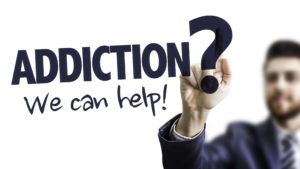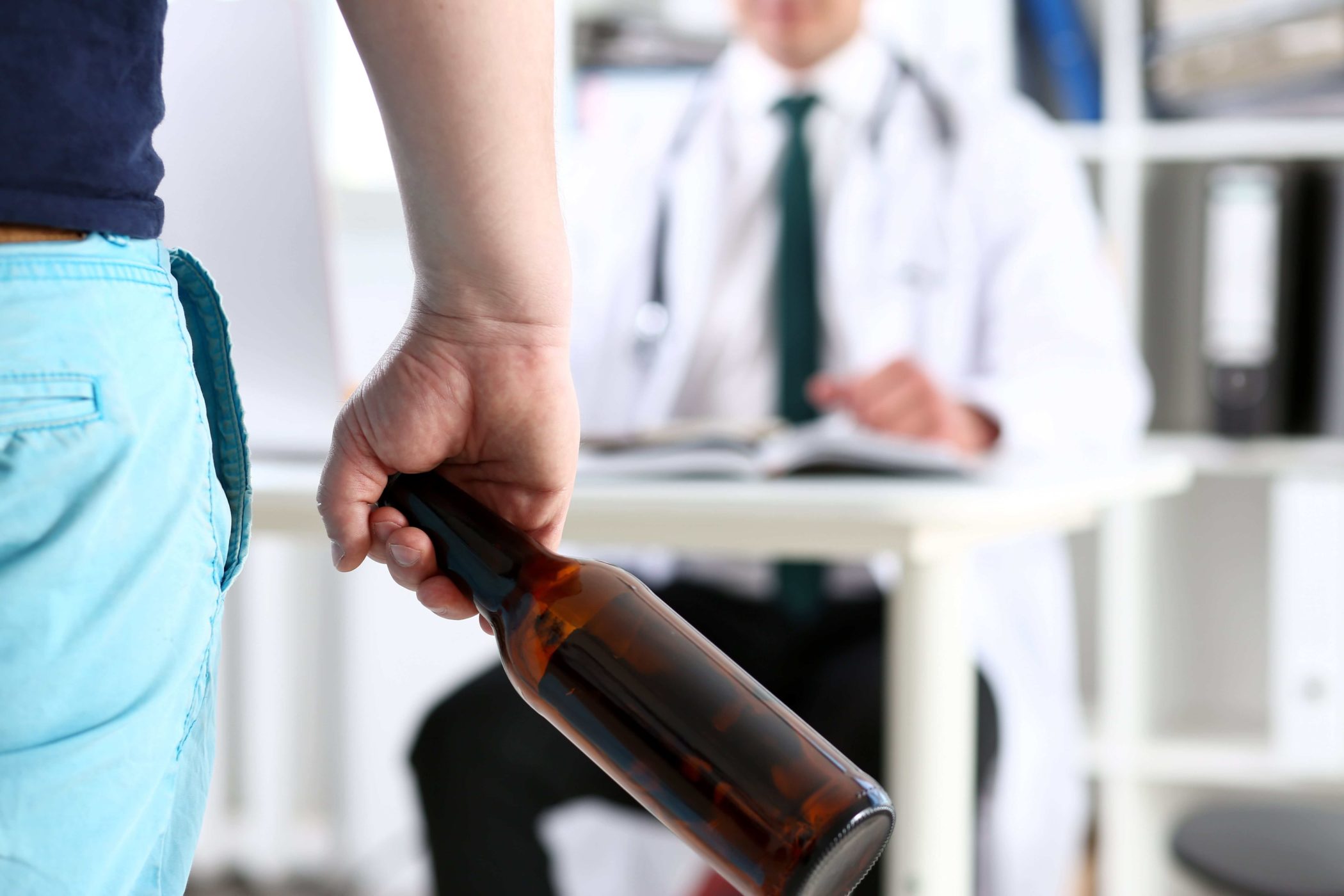Just as every person is unique, no single treatment for addiction is right for everyone. What works for one person trying to overcome drug abuse and stay sober may not work for someone else. One key to ensuring that the path to sobriety starts off safely, however, is by undergoing detoxification under the care and supervision of a health care professional. Medical detox ensures that individuals in recovery can safely manage any potential side effects and handle any related concerns such as a dual diagnosis.
Understanding Addiction
Drug and alcohol addiction is a common problem. In fact, the National Institutes of Health (NIH) estimated that up to 23 million Americans — almost one in 10 — are addicted to alcohol or drugs.
Behavioral health professionals often use the terms “drug or alcohol use disorder” to describe addiction. That’s because these disorders are official mental health conditions according to the Diagnostic and Statistical Manual of Mental Disorders, which professionals use to make a diagnosis.
The fifth edition of the manual, or the DSM-5, no longer defines a drug or alcohol use disorder using the terms abuse or dependence. Instead, the authors describe a single disorder with levels of severity ranging from mild to severe depending on the person’s symptoms.
Common symptoms of substance use disorders include craving, withdrawal, lack of control, and negative effects on personal and professional responsibilities. To be diagnosed as having a drug or alcohol use disorder, someone must meet at least two of the 11 symptoms that the DSM lists.
While drug or alcohol disorders start voluntarily, over time they take over a person’s ability to choose, causing lasting changes in the brain. Both substances affect the way the brain functions, particularly in the areas of reward, motivation, learning, memory, and behavior control, making later drug or alcohol use compulsive.
Excessive use of alcohol over time affects the brain in several ways. First, alcohol misuse can cause neurons, or cells, in the brain to burn out because alcohol blocks chemical signals between different neurons. This results in a slowing of reaction time, as the pathways that neurons travel become damaged. Alcohol dependence may also cause brain shrinkage, where the volume of gray matter and white matter in the brain lessens.
Drugs also interfere with the way neurons act in the brain. Depending on the drug, the neurons may be activated but instead, send abnormal messages. Alternatively, neurons may release an abnormal number of neurotransmitters, or chemical messengers, and disrupt the normal communication in the brain. Over time, drugs will alter how a person’s brain experiences pleasure by reducing the number of receptors that can receive reward signals or by producing fewer reward neurotransmitters.
Effective Addiction Treatment
As you can see, addiction can have severe and long-term consequences on the human brain, causing us to repeat harmful behavior patterns. Therefore, it’s so important that individuals who want to recover from alcohol or drug use disorders seek out professional help rather than trying to get sober on their own.
There are several hallmarks of effective addiction treatment programs. First, because of the complex nature of addiction and the way the disorder affects both brain function and behavior, there is no single treatment that works for everyone. Effective treatment must deal with each individual client’s unique needs in addition to their drug or alcohol use. Other hallmarks of an effective addiction treatment program include:
- Medically assisted detoxification as the first stage of treatment
- Counseling and other behavioral therapies
- Treatment plans that are regularly reviewed and modified as a patient’s needs change
- Addressing other possible mental disorders
- When appropriate, medications to help combat side effects or control cravings
Individuals seeking treatment for addiction should continue with their chosen treatment long enough for the program to be effective. This may mean seeking ongoing support through counseling or group therapy past their initial detox and treatment period.
What Happens During Withdrawal
 When someone stops drinking or taking drugs, their body experiences both physical and mental withdrawal symptoms. This can even occur if the person simply reduces their drug or alcohol intake for a period of time. Common symptoms of withdrawal include:
When someone stops drinking or taking drugs, their body experiences both physical and mental withdrawal symptoms. This can even occur if the person simply reduces their drug or alcohol intake for a period of time. Common symptoms of withdrawal include:
- Changes in appetite
- Changes in mood
- Congestion
- Fatigue
- Irritability
- Muscle pain
- Nausea
- Restlessness
- Runny nose
- Shakiness
- Sleeping difficulties
- Sweating
- Tremors
- Vomiting
The severity of these symptoms will depend on the type of drug addiction, as well as the individual’s biological makeup. Not only can withdrawal be unpleasant, but this phase of recovery can also be dangerous. More severe symptoms such as hallucinations, seizures, and delirium are possible. Physical symptoms may only last for a few days or possibly up to a week. However, the psychological effects of withdrawal can go on for much longer and result in depression or dysphoria, a profound sense of unease or dissatisfaction.
This is why we strongly recommend that individuals undergoing withdrawal seek out a medically supervised detoxification program. Such a program can help address health issues that may arise during withdrawal, such as dehydration and increased blood pressure, as well as any life-threatening side effects that can be highly dangerous when an individual undergoes withdrawal outside of a controlled medical environment. Medical detox offers many other benefits, including:
- Receiving 24/7 medical care and support
- Recovering away from access to drugs and alcohol
- Having access to medications that eliminate or reduce withdrawal symptoms
- Facing a reduced risk for relapse, overdose, and death
- Recovering without having to juggle responsibilities related to work, school, and family
- Improving your physical and mental health
Types of Detox
When it comes to inpatient detox options under the care of health care professionals, there are three main types: a hospital or acute care center, a standalone medical detox program, or detox provided at the beginning of a treatment program.
- Undergoing detox at a hospital is a good option for individuals with severe or long-term substance abuse issues, as well as individuals dealing with a severe dual diagnosis. Hospital-based detox will provide the specialized care that they need to start their recovery, including medically supervised detox and follow-up care. However, hospital-based programs generally do not include subsequent addiction treatment, which is handled by an outside provider.
- A standalone detox program will also provide medical care and support around the clock, just like the hospital option. After they complete detox, the individual will move into an addiction treatment program which may last 30, 60, or 90 days. Many of these programs are also able to handle any additional medical and mental health issues that the person may need to address. Some standalone detox providers also offer treatment, while others will refer individuals to an outside treatment program.
- Another option is receiving detoxification through a residential or outpatient treatment center. Many treatment programs offer a detox phase or special wing for individuals getting sober at the start of their program. After a medically supervised detox period, the individual would begin their recovery through the same treatment provider, providing greater continuity of care.
Treatment After Detox
Once an individual has completed their medically supervised detox, they can benefit from other treatments to overcome an addiction to drugs or alcohol. Many treatment programs use behavioral therapy techniques led by trained therapists to help individuals understand and manage addiction.
Cognitive Behavioral Therapy (CBT) is one such treatment and is considered highly effective for people with substance abuse issues. The American Psychological Association (APA) explains that CBT usually works to change behavior via strategies such as:
- Learning to recognize distorted thinking that creates problems and then reevaluate the reality of that thinking
- Gaining a better understanding of the behavior and motivation of others
- Using problem-solving skills to cope with difficult situations
- Learning to develop a greater sense of confidence in your abilities
- Facing fears instead of avoiding them
- Using role playing to prepare for potentially problematic interactions with others
- Learning to calm the mind and relax the body
Another useful therapeutic technique is Rational Emotive Behavior Therapy (REBT). The basis for REBT is the concept that a person’s internal thoughts make them happy, not the external events around them. This form of therapy asks individuals to challenge their irrational way of thinking and work to develop thinking that is more beneficial and rational. This shift in thinking can help them experience healthier emotions.
Another option that has proved effective for some individuals in recovery is contingency management (CM), which provides people with tangible rewards to help them reinforce positive behaviors and steer themselves away from using drugs or alcohol. According to the National Institute on Drug Abuse (NIDA), this method has proven effective in reducing relapses.
Finally, 12-step programs provide another option for treatment, particularly after a period of detox and rehab. These types of programs help connect individuals with peers who are also in recovery for support and guidance on maintaining their sobriety in the long term.
Medications for Addiction
There may be medications that can help people in recovery manage withdrawal symptoms and avoid a relapse. Whether a person qualifies for medication-assisted treatment will depend on the addictive substance and their medical history.
For example, some medications can be used to treat opioid use disorder. These medications include:
- methadone
- buprenorphine
- naltrexone
Both methadone and buprenorphine suppress withdrawal symptoms and relieve cravings for opioids because they target the same parts of the brain affected by those drugs.
Naltrexone is only for use by individuals who have already completed detox from opioids. This medication helps prevent people from taking opioids once they have stopped and can also help someone with alcohol addiction.
Other medications that can help with alcohol addiction include acamprosate, which can reduce withdrawal symptoms, and disulfiram, which interferes with how the body breaks down alcohol.
Can Addiction Be Cured?
 Drug and alcohol addiction can be treated, and people can recover, but addiction cannot be cured. Treatment is a multi-step process that involves detoxification, preferably under a doctor’s care for maximum safety and effectiveness, as well as behavioral counseling, evaluation and treatment for any co-occurring mental health issues and long-term follow-up to prevent relapse. The end goal is for the individual to not only be able to stop using drugs or alcohol but also for them to be able to stay substance-free and lead long-term sober lives.
Drug and alcohol addiction can be treated, and people can recover, but addiction cannot be cured. Treatment is a multi-step process that involves detoxification, preferably under a doctor’s care for maximum safety and effectiveness, as well as behavioral counseling, evaluation and treatment for any co-occurring mental health issues and long-term follow-up to prevent relapse. The end goal is for the individual to not only be able to stop using drugs or alcohol but also for them to be able to stay substance-free and lead long-term sober lives.
Addiction is a chronic disease, just like heart disease or diabetes. As with these diseases, addiction can be managed, not cured. Treatment can assist individuals in counteracting the disruption that drugs or alcohol have created in their brains.
As with diseases like diabetes, individuals should not view relapse as a failure. Relapse is a part of the recovery process. In fact, according to NIDA, the rate of relapse for chronic health issues such as hypertension or asthma is about the same as the relapse rate for substance abuse disorders.
In fact, relapse is a sign that the person in recovery needs to reach back out to their health care provider to resume treatment, modify their existing treatment plan or try a new and different treatment. The danger of relapse lies in the fact that once an individual has gone through detox, their body is no longer accustomed to the drug. This makes it much easier to overdose if they use the same amount of drugs that they were previously taking before getting clean.
The most successful addiction treatment programs work to address the whole individual and the wide-ranging effects that addiction has had on their life. Most likely, the person’s addiction has created consequences in multiple aspects of their life, including health issues, conflict with their family, and impact on their jobs. Addressing the many ways that addiction can impact a person’s life is key to effective treatment.
With the goal of treating the entire person with an evidence-based approach, Bridges of Hope is a residential recovery center centrally located in Indiana. We provide medically supervised detox, customized addiction treatment programs, and unique therapeutic options. We are Joint Commission accredited and licensed by the State of Indiana Department of Mental Health & Addiction.


 Verify Insurance
Verify Insurance
 Toll Free Call
Toll Free Call